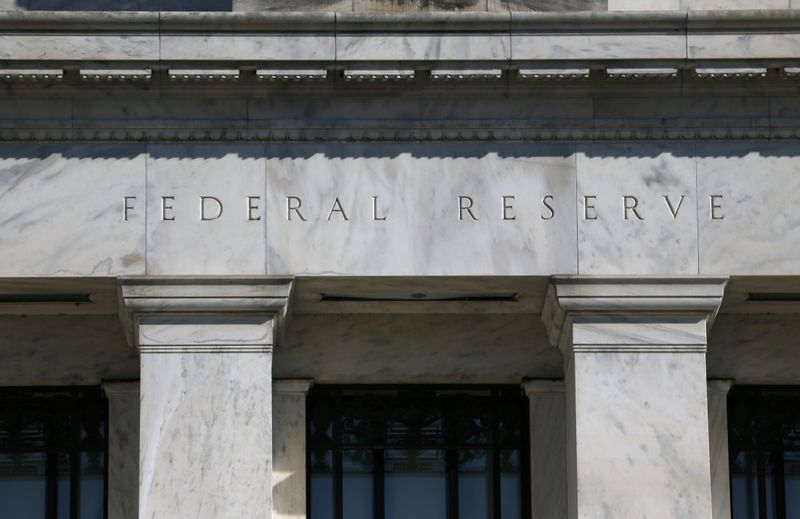
© Reuters
By Yasin Ebrahim
Investing.com — Banks eased borrowing from the Federal Reserve’s discount window from a record level last week, though picked the pace of borrowing from the central bank’s new lending program in an ongoing race to boost liquidity and bolster their finances following the recent turmoil in the industry.
In the week ended Wednesday, banks borrowed an average of $105 billion each night, down $12B from the prior record of $117B a week earlier, according to new Fed data released Thursday.
The still-elevated but lower borrowing from the Fed’s discount window — a program offering overnight loans, though usually shunned by banks as tapping it tends to signal distress — comes just as jitters about a crisis in the banking sector eases.
Borrowing from the Fed’s Bank Term Funding Program — a new emergency lending program launched following the collapse of Silicon Valley Bank – gathered steam, jumped $10.7B to $64.4B.
The new bank funding facility allows banks to receive loans for up to one year using qualifying assets including any underwater, or below-par, bonds as collateral.
The recent jump in borrowing from the Fed’s two lending programs has diluted the Fed’s quantitative tightening program – in which $95B of maturing bonds per month are allowed to mature, expanding the Fed’s balance sheet.
The uptick in lending signals that banks remain on high alert and are racing to shore up finances to reassure depositors at a time when the White House is calling for stricter regulatory measures.
President Joe Biden on Thursday called on regulators to step up oversight on banks, urging them to reinstate rules that were rolled back by the Trump administration following the collapse of Silicon Valley Bank and Signature Bank.
Investors are closely watching bank lending trends and deposit flows to gauge the health of the banking sector as Federal Reserve chair Jerome Powell hinted last week that tighter credit conditions could be a substitute for rate hikes.
“[W]e’re looking at what’s happening among the banks and asking, is there going to be some tightening in credit conditions?” Powell said at the Mar. 22 press conference. “And then we’re thinking about that as effectively doing the same thing that rate hikes do. So, in a way, that substitutes for rate hikes,” he added.
Some on Wall Street, meanwhile, expect a tighter lending standard to shore up the broader economy and dent growth.
“We continue to expect a 0.25% to 0.5% drag on 2023 GDP growth from a pullback in bank credit,” Goldman Sachs said, adding that the impact will likely lead to “weaker business investment by the manufacturing, commercial real estate, and information sectors.”





